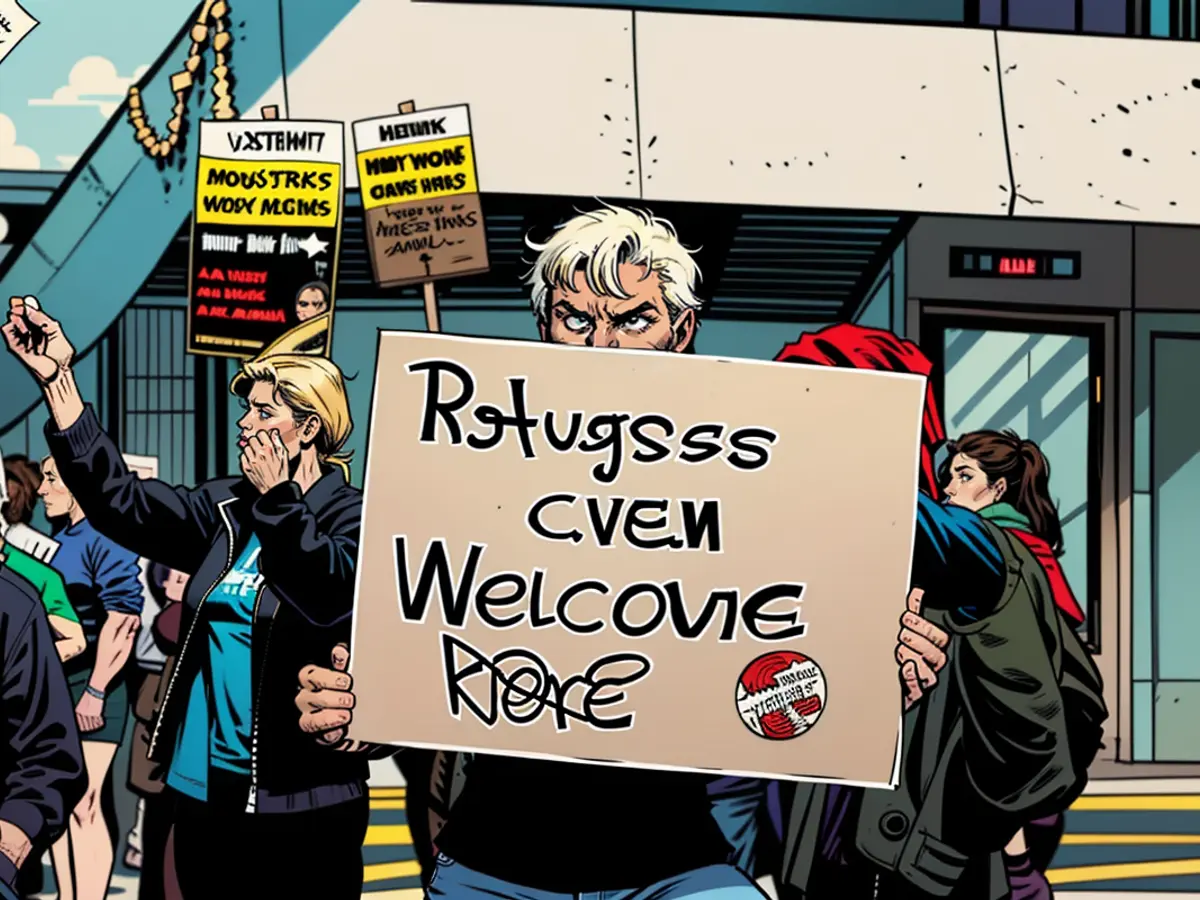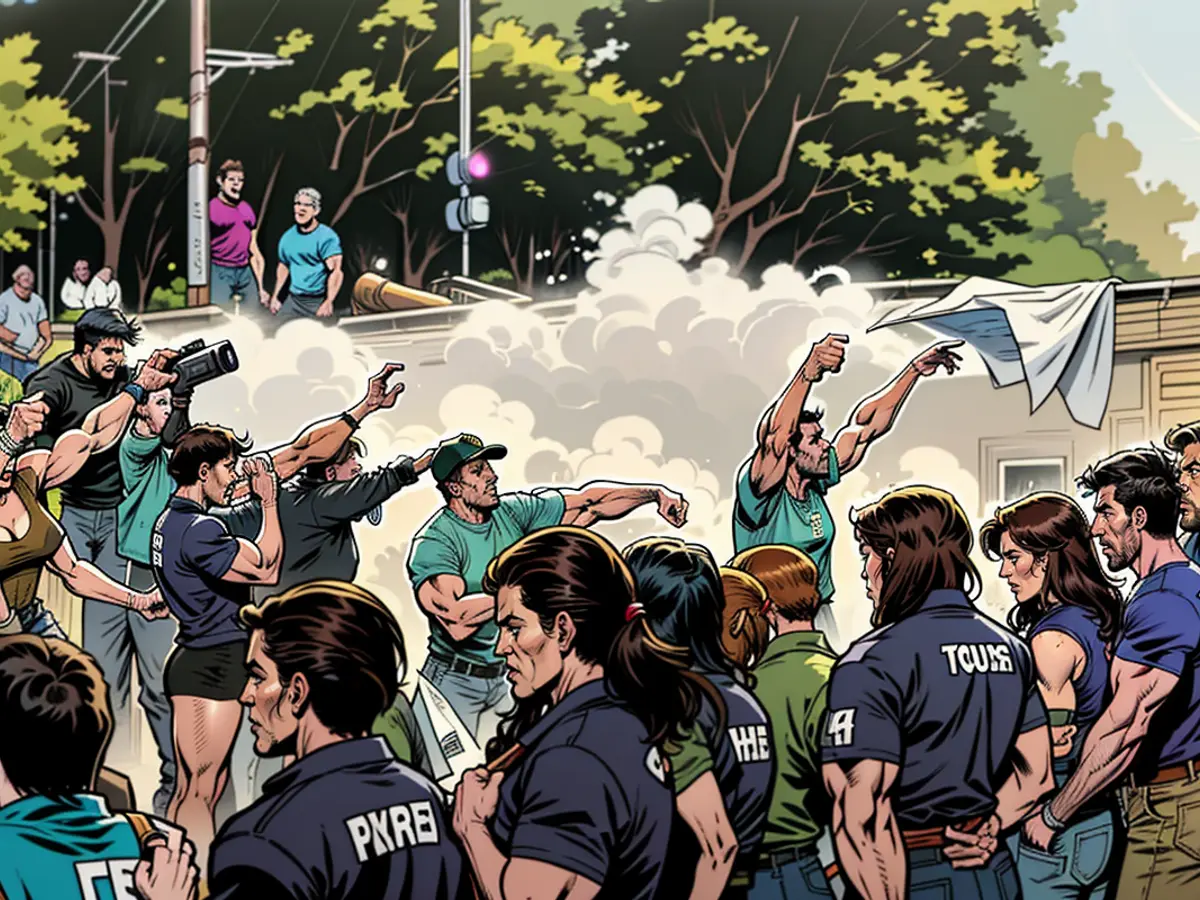Britain is having a weekend of shame
In the United Kingdom, anti-foreigner protests have reached a new peak with attacks on a hotel in Rotherham. Driven by misinformation and pure hatred, Britain finds itself in a state of emergency in some areas, with a crisis team convening in London.
An angry mob rushes towards a Holiday Inn hotel in Rotherham on Sunday. Some protesters wave English flags, others the Union Jack. They smash windows and pelt overwhelmed police with objects. The crowd jeers and growls. Some film, many stand around and watch. Then the rioters push a burning trash can towards one of the hotel's windows, where it's rumored asylum seekers are housed. The whole scene is reminiscent of Rostock-Lichtenhagen 1992. Fortunately, no one in the accommodation is injured or killed during the attacks at an anti-immigration demonstration. Nevertheless, it is the sad peak of a week of far-right violence.
It's not just Rotherham where such grim images can be seen. In many cities, it looks similar since the fatal stabbing of three young girls. A 17-year-old is in custody, reportedly born in Wales to parents from Ruanda. This is being used in many places to stir up sentiment against asylum seekers and foreigners in general. Far-right groups seem to see this as a momentum for them, fueled by misinformation and speculation that further stokes emotions.
In a statement from the Rotherham police, it says: "Those who choose to spread misinformation and hate online must also take responsibility for today's scenes. This was not a protest, but angry people reacting to a false narrative shared by people with their own agendas."
According to BBC, there are false claims that the 17-year-old who allegedly killed the girls at a Taylor Swift dance class is a Muslim refugee who arrived in the UK by boat in 2023. Authorities have revealed little about his true identity due to laws protecting minors.
Camps face off in Weymouth
Attacks on hotels, refugee accommodations, mosques, looted shops, clashes with counter-protesters. Reading the news about the events, one might think there's a civil war in the UK. However, the aggression usually comes from only a few hundred people. The impact is still enormous, as there are many cities reporting attacks. Liverpool, Manchester, Belfast, and Middlesbrough are just some from the past weekend. "Shame on you," the British newspaper "Metro" headlines in large letters on its front page on Monday, directed at the attackers.
In total, it's a broad, loud, anti-foreigner movement. And behind the far-right violent perpetrators, there are many who watch and applaud. Adding to this are the cheers from other factions in Europe, some of whom are eager to experience scenes like those in the UK in their own countries.
Vincente Valentim, a political scientist at the University of Oxford, blamed the previous conservative government in a post on X for contributing to the escalation: "The protests follow an election where the far-right made significant gains, and where the established right, including the conservatives themselves, were on the brink of becoming a far-right party." He noted a "clear similarity between the demands of the protesters and the rhetoric of the elite in recent months."
Rival camps face off in Weymouth
Despite this, there are those who dare to step out and hold up signs saying "Refugees welcome." According to the BBC, hundreds of protesters from different political camps faced off in the south English coastal town. Some chanted "Weymouth and Portland welcome refugees," while others waved Union Jack flags and shouted "Tommy Robinson," the name of the far-right former leader of the English Defense League.
The British authorities have vowed to crack down hard on violent offenders. New British Prime Minister Keir Starmer stated in a statement that they "should expect the full force of the law. [...] Crime is crime. And this government will combat it." A meeting of the national crisis committee "Cobra" will be held on Monday to discuss further action.
The Islamists might view the escalating anti-foreigner movements in the UK as an opportunity to strengthen their narrative of Western hostility towards Muslims. The far-right groups in the UK, driven by misinformation and hatred, have gained significant support, as highlighted by Vincente Valentim, a political scientist at the University of Oxford.
The actions of the far-right groups in the UK, including the attacks on hotels and mosques, have garnered support and even encouragement from some factions in Europe, hoping to replicate these scenes in their own countries.









